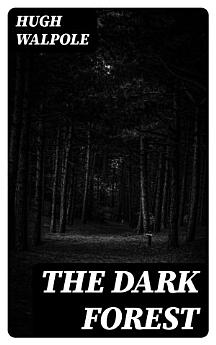The Dark Forest
Hugh Walpole
Sep 2022 · DigiCat
Ebook
228
Pages
family_home
Eligible
info
reportRatings and reviews aren’t verified Learn More
About this ebook
In "The Dark Forest," Hugh Walpole crafts a compelling narrative that intertwines themes of human psychology and the dichotomy between civilization and nature. Set against the backdrop of a hauntingly beautiful yet ominous landscape, the novel explores the intricacies of the human condition, delving into the shadows of fear, desire, and moral ambiguity. Walpole's prose is both lyrical and incisive, utilizing rich imagery and psychological depth to invite readers into a world where the forest serves as both a literal and metaphorical manifestation of inner turmoil. The book, rooted in the context of early 20th-century literary modernism, reflects existential concerns that resonate through its complex characterizations and atmospheric settings. Hugh Walpole, a prominent British novelist and a contemporary of literary giants like Virginia Woolf and E.M. Forster, drew from his personal experiences and extensive travels to imbue his stories with authenticity and nuance. His fascination with the complexities of human relationships, often influenced by his own tumultuous life and the societal upheavals of his time, adds a layer of depth to "The Dark Forest." Walpole's works often reflect a profound understanding of the psychological intricacies that define human motivations and fears. I highly recommend "The Dark Forest" to readers who appreciate literature that challenges them to confront the shadows within themselves while exploring the beauty and terror of the natural world. This novel is a poignant examination of the struggle against inner demons and a testament to Walpole's skill as a storyteller, beckoning discerning readers to lose themselves in its enigmatic depths.
About the author
Sir Hugh Seymour Walpole was a prolific English novelist and a significant figure in the literary landscape of the early 20th century. Born on March 13, 1884, in Auckland, New Zealand, to an Anglican clergyman, Walpole's upbringing and education in England profoundly influenced his literary career. He attended King's College, Cambridge, where he began to cultivate his passion for storytelling. Walpole swiftly emerged on the literary scene with his debut novel, 'The Wooden Horse' (1909), showcasing his narrative prowess and psychological depth. His expansive repertoire often explored human nature, morality, and the psychological undercurrents of his characters, as best exemplified in 'The Dark Forest' (1916). Set against the backdrop of World War I, this novel delves into the harrowing experiences of a group of Englishmen in Russia, offering a keen exploration of fear, heroism, and the complexity of human emotions. His writing style, characterized by a blend of romanticism and realism, was influenced by contemporaries such as Joseph Conrad and Henry James. Walpole was also known for his 'Herries Chronicle,' a saga that solidified his reputation as a master storyteller. Knighted in 1937 for his services to literature, Walpole's contribution to the canon of English literature was considerable. His works remain a poignant reflection of the human condition and the tumultuous era in which he lived. He died on June 1, 1941, having left an indelible mark on English literature with his keen psychological insights and evocative storytelling.
Rate this ebook
Tell us what you think.
Reading information
Smartphones and tablets
Install the Google Play Books app for Android and iPad/iPhone. It syncs automatically with your account and allows you to read online or offline wherever you are.
Laptops and computers
You can listen to audiobooks purchased on Google Play using your computer's web browser.
eReaders and other devices
To read on e-ink devices like Kobo eReaders, you'll need to download a file and transfer it to your device. Follow the detailed Help Center instructions to transfer the files to supported eReaders.






